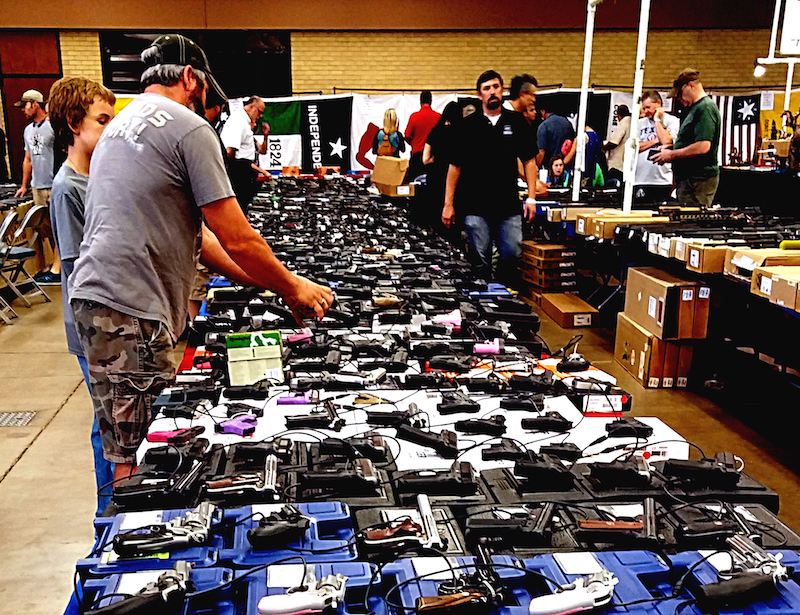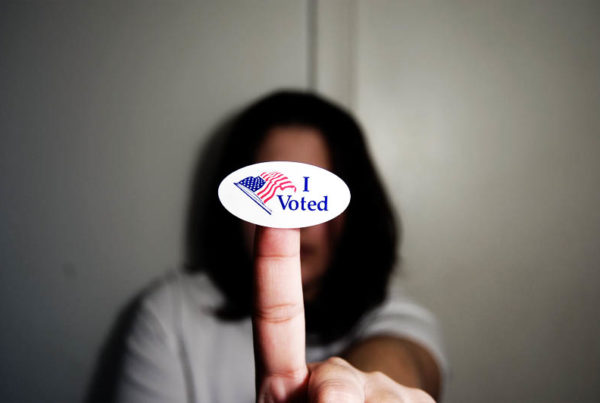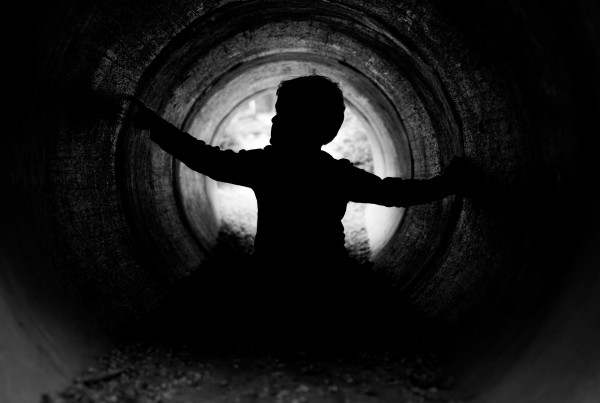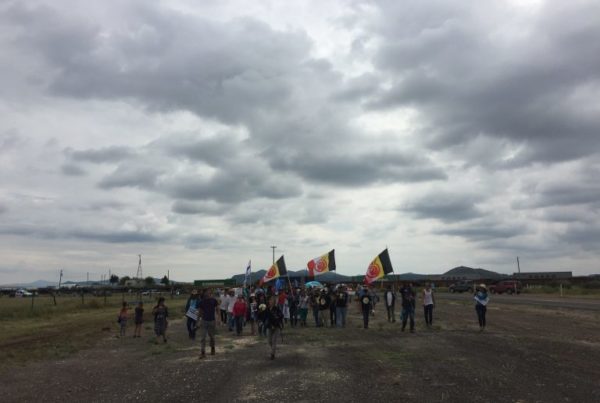Lewisville, Lubbock, Sherman – just a handful of Texas cities where there will be gun shows this weekend. At any given time, nearly a half dozen cities across the state host weekend gun shows where sellers, buyers, and collectors congregate in what amounts to a firearms bazaar of sorts.
Criticism over these events focuses on a lack of universal background checks for purchasers. But law enforcement agents have been tracking some gun show patrons’ license plates.
Wall Street Journal reporter Devlin Barrett says Immigration and Customs Enforcement (ICE) agents asked local cops scanned the license plates of cars in the parking lot at a big gun show in California – but his investigation shows it could have happened more than once.
“The email suggests that they actually did it at a bunch of gun shows,”Barrett says, “but law enforcement officials were only willing to acknowledge that they did it at one show in particular.”
He says ICE used local law enforcement likely as a function of convenience. License plate scanners are used more in patrol work, so local officers do the scanning and hand the data over to the agency. But, Barrett says, the bigger issue at play is what to do with that information.
“ICE, I’m told, still doesn’t have any investigative guidelines for how license plate readers should be used,” he says.
The theory behind the tracking the license plate numbers from gun shows was that the data would aid finding gun smugglers. Investigators would compare license plate numbers with people who crossed the border to Mexico and then have a list of people who did both. They could then look at those people to see if they were smuggling arms to the Mexican cartels.
“There’s two real issues here,” Barrett says. “One is, what the civil liberties folks say, which is, look, you are matching up two perfectly legal, constitutionally protected activities, and calling that suspicious. That’s not how this is supposed to work.”
The other issue – the federal government is legally barred from creating registries of people who own guns. These lists are technically just people attending gun shows, not necessarily gun owners, which Barrett says that may be worse.
“You’re not even accurately focusing on people who bought guns,” he says. “You’re focusing on people who essentially walked into a store.”
This isn’t the first time the federal government has tracked license plates. In the 1960s and ’70s, the FBI used to take down license plate numbers at student political gatherings and people at rock shows, claiming they were investigating drug rings. Barrett says new technology makes these cases different.
“Those old cases, that involved cops literally writing in a notebook. Walking around and writing, plate by plate,” he says. “These license plate scanners can pull in thousands of plates within an hour, so your capacity to suck up information is much, much greater now.”
Barrett’s reporting only found evidence of license plate tracking at gun shows in California, even though many investigators believe most of the guns that move from the U.S. to the Mexican cartels are originally purchased in Texas.
“It’s a little strange that ICE would start in California, which actually has some pretty tough gun purchasing laws, and think that they were going to find significant gun running in that environment,” he says, “versus Texas.”
















